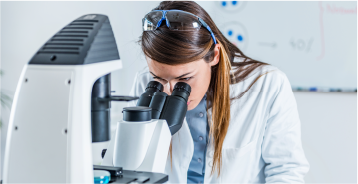Epigenetics and addiction – why quitting is more than just sheer willpower
 Health and Wellness
Health and Wellness
We need to process your personal information for you to interact with this website. We also use Cookies to enhance your experience. Please accept the Website Ts and Cs and Data Protection and Privacy Policy to fully access the website.
Tuberculosis (TB) is a serious, highly contagious lung infection. According to the World Health Organization (WHO), TB “is the second leading infectious killer after COVID-19 (above HIV and AIDS).” However, TB is preventable and curable. A simple test can help to detect TB, so that you can receive the right treatment to increase chances of a full recovery.
Prevent TB
TB is caused by bacteria that’s spread from one person to another through tiny droplets released from your nose or mouth into the air.
A simple, practical way to prevent TB is to practice good hygiene. Completely cover your mouth and nose when you sneeze and cough (into your elbow and not your hands), place used tissues in a bin, and wash your hands regularly with soap and water.
A vaccine to prevent severe TB in infants in countries, like South Africa where TB is common, is available. A TB vaccine is available as a preventative care benefit on the paediatric vaccine list at Scheme risk to infants up to two months old on all of Bestmed’s benefit options, except Beat1 and Beat1 Network. Effective TB vaccines for adults are in various stages of development and testing.
Test for TB
TB tests are important, especially for those who are at risk due to chronic illness or a weakened immune system. In South Africa, TB is mainly diagnosed through a PCR test (nasal or saliva swab). A skin test or chest X-ray is usually used to diagnose TB in children. Testing is free at public health facilities and results are usually available two to three days later.
Private laboratories are also able to test for TB. Pathology benefits are available across all Bestmed benefit options, except as an out-of-hospital benefit on Beat1 and Beat1 Network.
Treating TB
If you test positive for TB, it’s essential that you complete your course of prescribed medicine to recover fully and so that the strain of TB doesn’t become drug-resistant and, therefore, difficult to treat.
A combination of medicine may be prescribed for six months. Drug-resistant TB may be treated for longer. Treatment is free at public health facilities.
Further reading
For more information on TB, you can refer to our past articles on TB:
Though tuberculosis cases occur frequently in South Africa, it’s preventable, easy to test for and treatable. Let’s join hands in helping to stop the spread of TB. Take the necessary health precautions and go for a TB test today.
References
Bestmed Medical Scheme. 2021. Prevent tuberculosis (TB). Available [Online]: https://www.bestmed.co.za/resources/articles/medical-conditions/prevent-tuberculosis-tb.
National Institute for Communicable Diseases. 2021. TB frequently asked questions. Available [Online]: https://www.nicd.ac.za/tb-frequently-asked-questions/.
South African Government. 2024. What is TB and where can I get treatment? Available [Online]: https://www.gov.za/faq/health/what-tb-and-where-can-i-get-treatment.
World Health Organization. 2023. Tuberculosis. Available [Online]: https://www.who.int/news-room/fact-sheets/detail/tuberculosis.